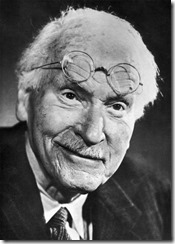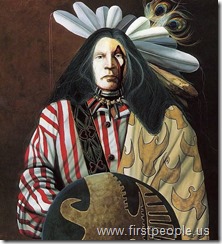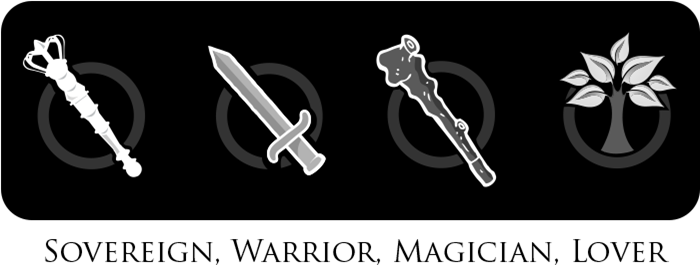Masculinity-Movies blog
posted by Eivind on April 18, 2014, at 11:29 am
 In reading Jung’s work on archetypes this morning, I am reminded of how much I love being exposed to the ideas of great minds.
In reading Jung’s work on archetypes this morning, I am reminded of how much I love being exposed to the ideas of great minds.
Getting through two pages took me half an hour, and sent me into the realms of Immanuel Kant, Aristotle, Plato, a critique of reason and the nature of knowing itself.
My willingness to become a true student in the act of reading was so enjoyable, it got me thinking about my work with men.
Of all the archetypes, I have noticed that we men tend to be most comfortable with the Magician. Not the entirety of the archetype, however, but the part of it that deals with reason and knowledge. We feel safe in our ivory towers, distant from the messiness of the world and the feminine.
Magicians locked up in their ivory towers never become powerful, however. Because from that place up in the clouds, the learning can not be grounded in the realm of matter and lived experience.
For that to happen, the budding Magician must also integrate the shamanic aspect of the Magician archetype, which most men never do. Being a true student, like being a shaman, has a strong element of descendance, of moving down from reason into matter. And since so many men don’t honor this movement, they end up as nutty professors (A Beautiful Mind) rather than powerful Magicians.
 Studying is best done for the love of learning, not for the desire to consume books. It’s best done for the potentially blissful process of expanding and revising our map of reality, not simply for taking on fascinating ideas in order to dominate a quiz down the pub.
Studying is best done for the love of learning, not for the desire to consume books. It’s best done for the potentially blissful process of expanding and revising our map of reality, not simply for taking on fascinating ideas in order to dominate a quiz down the pub.
When we fail to honor the real challenge of being a true student, we may accumulate knowledge, but we become disembodied, ungrounded and sans real wisdom. In effect, we become less powerful and more miserable.
So give your Magician the opportunity of becoming powerful by celebrating the process of true study. Spend an unreasonable amount of time with one book, rather than skimming through 10*.
When you do so, you’ll slowly start to discover that wisdom is holographic in nature, that delving deeply into one excellent book of powerful ideas will open up a cosmos of universal principles far greater than what is merely between those covers.
—
*When I first read David Deida’s the Way of the Superior Man, I liked it so much I decided to translate it. I spent countless late evenings/nights with that project.
Similarly, when reading Robert Moore’s and Douglas Gillette’s book on KWML, I changed my focus for this website, dedicated vast amounts of time to learning and living the wisdom, and eventually became an international authority on the topic.
posted by Eivind on March 27, 2014, at 3:12 am

I sit here preparing for a daylong workshop on the Sovereign, Warrior, Magician, Lover archetypes at the Integral Center here in Boulder, Colorado tomorrow. I will be offering a condensed version of the weekend immersion I offered in Norway in 2012 and 2013, based around the “reclaim your inner throne” workshop process (referred to previous participants as the most powerful workshop process they ever experienced).
In the process of preparing, I have updated the 11-page introduction document to the archetypes (linked for your convenience).
One of the concepts I introduced in this document is that each archetypal quadrant has its own unique flavor of shame. I haven’t seen anyone else write about this. As far as I know, this teaching is unique (and still in its infancy – I need more data to hone it and confirm it completely). And in this updated version of the document, I have rephrased these flavors of shame to be more aligned with my new understanding.
As I now prepare to list these, I ask you to take a deep breath, put away anything that’s on your mind, and fall to rest. Open to receive the impact of these pithy sentences. Doing so may, if my hypothesis holds true, give you enormous insight as to which archetypal quadrant holds the most shadow for you.
Here they are, the four types of archetypal shame and their accompanying core beliefs:
- Sovereign: “I’m broken”
- Warrior: “I’m weak”
- Magician: “I’m stupid/incompetent”
- Lover: “I’m unlovable”
Really feel these different forms of shame circulate in your system. Which one of them do you feel the most? Which one really “gets” you?
My working hypothesis, based on studies, life experience and working with men, is that when you find which one of these impacts you the most, you know which archetypal shadow has the most power over you. In other words, if the one that really gets you is “I’m unlovable”, it means that it’s the Shadow Lover that you should focus on in life. In this particular case, you are likely to find, if you check in with yourself, that you suffer from strong addictive patterns on the one hand and a loss of vitality and potency on the other (spending hours on the couch in front of the TV is an example of a Shadow Lover dynamic).
By the wonders of the path of the alchemist you may find, once you start working with this shadow dynamic, that your true life purpose is related to this shame. It’s a universal spiritual teaching that your deepest wounds give rise to your greatest gifts (that’s precisely why you were wounded in such a way – to prepare you for your great work).
My experience working with men tells us we are afraid of our feelings and vulnerability. So we tend to keep our wounds at an arm’s length. That is the reason why so few of us end up discovering our true purpose in this lifetime. There is no true life purpose to be found without examining our wounds. I believe this with every fibre of my being.
I want to share this short experimental teaching with you, so you can take part in the body of knowledge and wisdom we will step into here in Boulder, tomorrow.
Open that KWML PDF-file, examine the shadow dynamic of the archetype which corresponds with your deepest shame, and you may have the recipe to the most important growth work you can do in your life right now.
Whether this hits home with you in a strong way or it doesn’t really seem true to you, let me know in the comments below. This teaching is in its infancy and I need your help to hone it.
Best regards,
Eivind
PS! I think developing this theory fully could further the whole body of work around KWML. It would give us a super quick way to identify our big inner work and the gift we have to offer. There is a risk that the theory is too general and borderline wishful thinking, but I have faith in it. It’s therefore very important to me to hear how this does or does not apply to you.
posted by Eivind on March 7, 2014, at 3:59 am
Do you feel limited by the conditioning of your childhood and culture? Do you feel as if you’re holding back your gifts for fear that you will be rejected if you gave them fully? Do you feel power brewing inside, but deliberately repress it for fear that you might bring destruction if you expressed it?
If so, you might be interested to know that two topics have been on my mind a lot lately: Wildness and addiction.
Two days ago, I co-hosted an event at the Integral Center here in Boulder, Colorado named “Reclaiming our Wildness”. Healer and psychotherapist Sweigh Emily Spilkin and I gave 40 participants a taste of wildness. They were deeply impacted. They cried tears of gratitude, came up to us and profoundly thanked us, even sent messages after returning home on how their senses had mysteriously strengthened and their addictive tendencies lessened.
Defining Wildness
 In planning this event, Sweigh challenged me to offer her my definition of Wildness. One definition I offered her was “letting nature move through me unfiltered by social conditioning”. Not letting social norms and taboos dictate who I am and how I show up. The definition I want to offer you now, however, simple as it may be, is that wildness is the polar opposite of addiction.
In planning this event, Sweigh challenged me to offer her my definition of Wildness. One definition I offered her was “letting nature move through me unfiltered by social conditioning”. Not letting social norms and taboos dictate who I am and how I show up. The definition I want to offer you now, however, simple as it may be, is that wildness is the polar opposite of addiction.
I arrived at this definition initally when I noticed how I contract and get scared when I engage in droning, repetitive activities for a long time. When I’ve e.g. sat on Facebook for longer than I know is good for me (moving beyond functional networking to validation seeking), I get afraid of people and the world. I move out in public spaces and find myself totally convinced that I’m a separate individual in a challenging world. I completely forget my trust in Spirit and my remembrance of shared humanity.
This is hardly surprising. Addiction, as I mentioned in my recent Don Jon review, is the acting out of a deficiency of love. It’s a way to numb out in the face of unbearable circumstances. Any addictive pattern is therefore prone to drive home in us that we are not worthy or lovable. And I don’t know about you, but in those moments I consider myself worthless, human beings are not pleasant to be around. There’s too much shame and fear involved.
When I let “nature move through me”, however; that is, when I allow my intuitions, impulses, needs, feelings and desires to flow through me in skillful ways, I feel strong, present, loving and joyful. I’m in service, speaking the truth and loving without condition. Which is ironic given that this Wildness is the very thing we have been raised to be afraid of.
A world of domesticated men and women
Most of us are domesticated products of fear-based conditioning. We have been trained to be tame because the world is afraid of our Wildness. We have been trained to forget that we are expressions of nature. Our elders hadn’t the wisdom to teach us that if we repress our Wildness, its psychic energy explodes out through kinks and pathologies (You just don’t stop energy. In any form. Harness it by relating to it on its terms or get screwed by it.)
The consequence is that the very measures society has put in place in order to maintain order end up destroying it. The shocking lack of wisdom on display in today’s cultural climate results in disharmony, psychopathology, broken families and addicted populations. And our lack of Wildness is at the root of the addictive tendencies that give rise to Consumerism.
I look around and see a world full of severely addicted people. We cannot bear to eat a single meal without entertaining ourselves. We get hooked to our mobile phones and its validation crackpipe mechanisms in the forms of SMS-messages, Facebook likes or E-mails. We engage in obsessive thinking, because we cannot bear the pure joy of being silent. We are even so corrupted that we think we need to have the latest gadgets in order to be “cool”.
And I ask: Is it worth it? My own personal answer is “hell no”. Which is why I will soon bring you a longer article on addiction and how to be with it, perhaps even recover from it, in the best possible way. Not that I’m an expert in the field of addiction in academic terms, but I’ve been on my own journey with it and have gold to share.
And while you wait, remember that any time you engage in addictive behavior, it’s a reminder that you have forgotten your inherent goodness. You are engaging in an activity that will inevitably result in self-shaming and a feeling of being intimated by even the friendliest of people.
If you want to go deeper with these themes, read more about my Coaching services. I would love to work with you!
posted by Eivind on February 24, 2014, at 6:42 am
 It was this Friday that I posted on Masculinity-Movie’s Facebook page that Hollywood is a source that has run dry for me. I shared how I’m tired of dystopian, apocalyptic scenarios and how I just want something that feels real. The next day, my lover invited me to the cinema to watch Spike Jonze’s “Her”. I’ve heard good things about this movie, but it’s still been pretty much off my radar.
It was this Friday that I posted on Masculinity-Movie’s Facebook page that Hollywood is a source that has run dry for me. I shared how I’m tired of dystopian, apocalyptic scenarios and how I just want something that feels real. The next day, my lover invited me to the cinema to watch Spike Jonze’s “Her”. I’ve heard good things about this movie, but it’s still been pretty much off my radar.
Boy am I glad I went. Faith in Hollywood restored (minor spoilers below).
“Her” is the best movie I’ve seen in a long, long time. The two of us sat together wooed for quite a while after, letting the movie circulate and integrate in our system. This is a movie I’ve actually thought about after watching it. That is a rare experience these days.
“Her” is the near-future story of Theodore, a newly divorced man who buys the latest operating system on the market for his computer. The operating system is an advanced AI – a consciousness as the marketing would have it – and it goes by the name of Samantha (which “she” comes up with herself).
From the first time Samantha speaks to Theodore, it’s clear that she is no ordinary computing experience. She has feelings, is curious about what it’s like to have a body and wants to get to know Theodore. Theodore’s mobile phone has a built in camera that serves as her eyes, and she enjoys to watch him sleep.
Over time, Theodore and Samantha fall in love, and since the OS adapts and evolves based on experience, she feels like a real person to Theodore. The only problem is that she lacks a body. This gives rise to the only profoundly creepy scene in the whole movie, where a woman visits Theodore as the AI’s human surrogate. This woman gives herself freely to Theodore and Samantha’s relationship, so that the two get to have sex together. And it’s Samantha who initiates the whole thing. This scene is profoundly disturbing to me, and so well done.
Having watched this movie, it strikes me how much I love watching a science-fiction that is not dystopian (even though the subject matter is at times troubling). It strikes me how much I love a movie about super-intelligent AIs that evolve from experience, without evolving toward becoming enemies of mankind (they in fact evolve towards some sort of enlightenment).
This is exactly what I was wanting from Hollywood now. I’m tired of dystopia and apocalypse. I wanted something that felt real and I got it. Which is no mean feat considering the subject matter.
Spike Jonze is clearly a very intelligent man in tune with the finer subtleties of the human experience. His movie brought out moods and experiences that my lover and I could recognize from our own relationship, even though it’s a very new one, and it brought us closer. This is thanks in large part to the exquisite dialogue; it’s simply believable.
I was bummed to see the movie theatre relatively empty – and that people were leaving during the movie. I didn’t like seeing that at all, because this, in my opinion, is movie making at its finest. I guess we, the public, get what we ask for. If people can’t appreciate a movie like this (and would rather watch dumb-ass thirteen a dozen apocalyptic special effects extravaganzas) then there is little hope of studios producing very many intelligent movies.
Anyway, if you haven’t seen “her” yet and it’s still running at a movie theatre near you, please take this opportunity to go see some of the best stuff that’s come out of Hollywood in a very long time. As a reader of my website, I trust you’ll be able to appreciate it. I don’t think it will give you inspiration to find your masculine empowerment, but it will give you beautiful insights into the nature of relatonships.
Enjoy! And do share your thoughts about the movie below.
PS! I write about this movie in my blog because I do not intend to write a full review about it.
posted by Eivind on February 14, 2014, at 9:25 pm
In May of 2013, I presented the Masculinity-Movies work to an international audience at a men’s conference (hosted by Nick Duffell and Robert Fischer) outside of Frankfurt, Germany.
I’ve now finally taken that footage and uploaded it.
The presentation lasts for the first 19 or so minutes. It’s a rare opportunity to get the backstory of why I decided to create this website and to know the place of pain, suffering and longing it grew out of.
After that, I feature some very powerful movie clips that I believe will really get to you, touch your heart and inspire you to bring more of yourself (including your power and sexuality) into the world.
 In reading Jung’s work on archetypes this morning, I am reminded of how much I love being exposed to the ideas of great minds.
In reading Jung’s work on archetypes this morning, I am reminded of how much I love being exposed to the ideas of great minds. Studying is best done for the love of learning, not for the desire to consume books. It’s best done for the potentially blissful process of expanding and revising our map of reality, not simply for taking on fascinating ideas in order to dominate a quiz down the pub.
Studying is best done for the love of learning, not for the desire to consume books. It’s best done for the potentially blissful process of expanding and revising our map of reality, not simply for taking on fascinating ideas in order to dominate a quiz down the pub.


